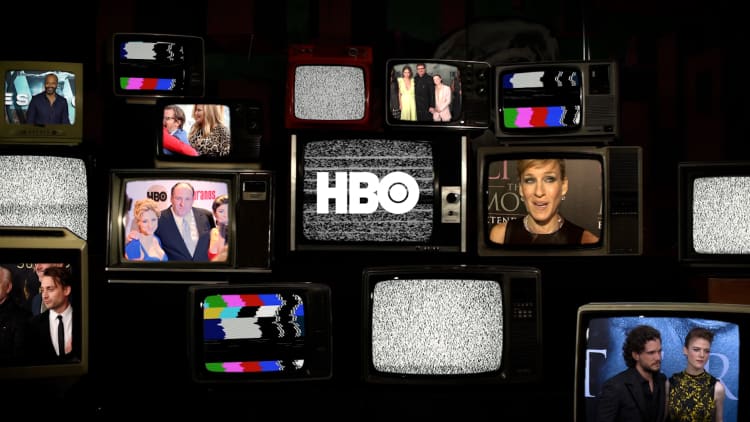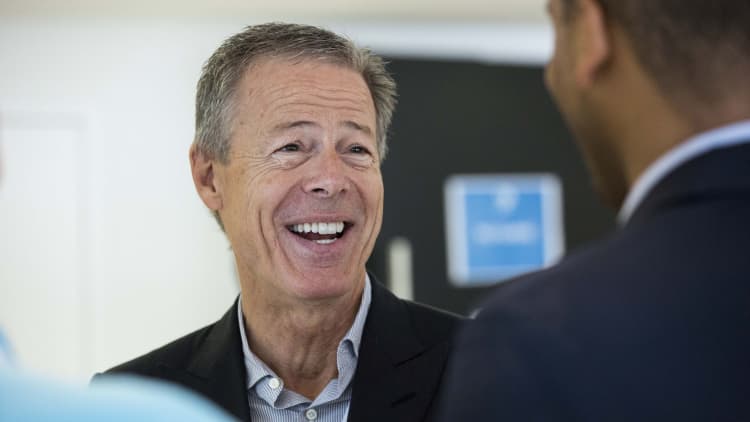Today, when we think of HBO, we typically think of big-budget, award-winning series like "Game of Thrones," "Succession," "The Last of Us" and many more. However, original script programming wasn't where HBO got its start. The birth of the network coincided with the modernization of television across the United States with the emergence of cable in the 1960s and '70s.
It was the only network that anybody had ever tried that got off the ground where it wasn't supported by advertising. This was in the 1970s when the big three networks, CBS, ABC, NBC, they had 95% of the viewing and basically they had all the money and all of the stars.Jeff BewkesFormer CEO, HBO and Time Warner
HBO pioneered television as one of the first pay TV networks airing uncut movies, live boxing matches, concerts and comedy specials. When DVD rental companies such as Blockbuster rose to prominence, HBO pivoted to original scripted content, a move that paid off heavily for the network as the company has won 546 prime-time Emmys and currently has close to 80 million subscribers.
"Our No. 1 reason why people subscribe to HBO is now being taken by Blockbuster. And what are we going to do? We're going to have to do original series," Jeff Bewkes, former CEO at both HBO and Time Warner, told CNBC.
However, HBO has never been its own stand-alone business. The network has survived merger after merger with one — AOL-Time Warner — being considered the worst deal in modern American corporate history.
In 1989, Time Inc. announced a $14 billion deal to merge with Warner Communication, creating the largest media and entertainment conglomerate of its time. The Time Warner era ushered in a multiplex model for HBO to reduce subscriber losses and debut original programming "Dream On" and "The Larry Sanders Show."
By the late 1990s and early 2000s, the network made big investments in original content. HBO followed up "Dream On" and "The Larry Sanders Show" with bold bets that would turn into critical darlings like "The Sopranos" and "Sex and the City." The network went on a hot streak of original programming.
We knew we had to be different. It [HBO] had to be, particularly in the early years, simply put, worth paying for.Richard PleplerFormer CEO, HBO
In 2002, HBO would see itself undergo another merger, this time, one of the worst. The more than $160 billion deal was met with a $98 billion net loss for AOL-Time Warner at the end of 2002. It took years for Bewkes to uncouple Time Warner from AOL but by 2009, Time Warner was spun off from AOL. "After the unwinding of the AOL deal, Jeff Bewkes had to make a lot of decisions about different divisions that were pruned or sold or spun. And ultimately, he made the company a pure content company. I think. What Jeff was very adamant about for my colleagues at Turner and Warner Brothers and HBO was. You guys do what it is that you do — make great programming," Richard Plepler, former CEO of HBO, told CNBC.
During the turbulent period right after Time Warner was spun off, HBO carried on. Hit shows like "Game of Thrones," "True Blood," "Veep," "Insecure" and many more dominated the zeitgeist in entertainment with 228 prime-time Emmy wins between 2009 and 2017. HBO under Time Warner was the most distributed pay TV service in the U.S. However, it came at a time when domestic growth was undercut by cord-cutting and steep competition from other streamers. To combat this, the network set its sights on two major efforts: international growth and streaming.
Another merger was on the horizon for HBO as Time Warner was bought by AT&T for $85.4 billion in 2016. The deal took more than 18 months to complete as it was met with pushback by regulators and the Department of Justice. Under AT&T, Time Warner became WarnerMedia and it looked to activate HBO's prestigious brand image to the wider world of streaming to compete with the likes of Netflix. Instead of bolstering HBO's existing streaming products, HBO Go and HBO Now, Warner Media created a new streamer that combined WarnerMedia's extensive film and TV catalog with HBO, forming HBO Max.
In 2023, under Warner Bros. Discovery, current CEO David Zaslav is looking at deep cost-cutting measures to chip away at the estimated $55 billion in debt it inherited from AT&T. In April, the new streaming service, Max, was announced. Some experts say the company may be in for yet another sale.
Watch the video above to learn about how HBO became the gold standard of television despite its tumultuous business history.



